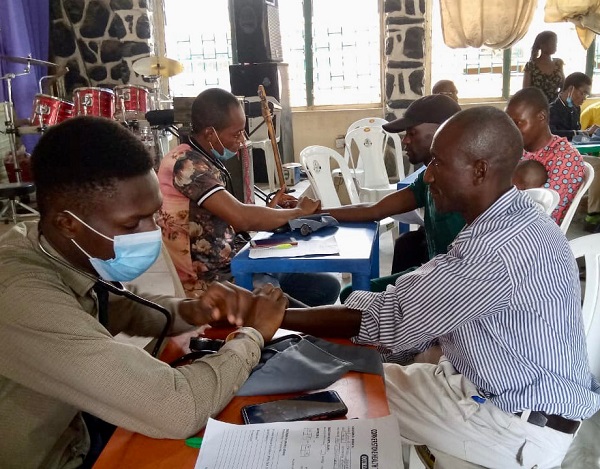
Vigilance in deploying technology to transform Nigeria’s health sector has been touted as the main ingredient which stakeholders need to apply.
The statement was made by distinguished obstetrician and gynaecologist and healthcare entrepreneur, Dr. Richardson Ajayi, who underscored the importance of vigilance to ensure the government’s ambitious vision for a digitalised healthcare system becomes a tangible reality. Ajayi emphasised this crucial point during an interview monitored in Abuja.
Nigeria’s government has articulated its commitment to digitising the country’s healthcare system with the aim of achieving better health outcomes. The Minister of State for Health and Social Welfare, Dr. Tunji Alausa highlighted the significance of this endeavour during a press briefing on the ministry’s agenda for the sector. He emphasised that digitalising the healthcare system would facilitate the collection of accurate data to enhance activities in the sector.
Alausa stressed the need for accurate and valid data that could be trusted both locally and internationally. He stated, “We need to ensure that the data we collect are accurate, validated, internationally and locally trusted, and usable for delivering care to our people. With validated data that we trust, we can identify areas where we are making progress and where improvement is needed. This enables us to refine our interventions for better outcomes”.
Drawing from his wealth of expertise in the field, Ajayi provided valuable insights into the potential and challenges of Nigeria’s digital healthcare transformation. He acknowledged that this vision had the potential to revolutionise healthcare delivery, granting improved access to quality care and enhancing the overall health and well-being of the nation’s citizens.
However, he also emphasised the importance of proper implementation to realise these potential benefits fully. He noted that the government’s recent announcement of a groundbreaking plan to revolutionise the healthcare system through digitalisation and increased funding for research was a commendable initiative aimed at enhancing the quality of healthcare services and improving overall patient outcomes.
One of the plan’s key components is the adoption of a data-driven approach. This approach involves harmonising information and employing data analytics to guide health policy decisions and identify areas in need of improvement. Ajayi stressed that this approach would play a vital role in ensuring the efficient allocation of resources.
Another significant aspect of the plan involves the establishment of a national electronic medical record, aiming to unify all primary healthcare centres (PHCs) and hospitals on a single platform. This centralized system will enable seamless access to patient records, enhancing efficiency and the continuity of care.
Moreover, the government’s commitment to increasing funding for research in the healthcare sector is expected to fuel indigenous research efforts, promote self-sufficiency in the pharmaceutical industry, and elevate Nigeria’s standing in the global healthcare arena.
Despite these promising developments, Ajayi pointed out that there were challenges to overcome. He emphasised the paramount importance of cybersecurity, especially in protecting sensitive patient data as healthcare systems undergo digital transformation. Adequate training for healthcare personnel to navigate the digital landscape effectively was also crucial, requiring continuous education and skill development programmes.
Ajayi highlighted the Bridge Clinic as a leading healthcare institution at the forefront of healthcare technology integration. The clinic has adopted advanced systems such as FertySmart, customer relationship management (CRM) and FreshSales, as well as enterprise resource planning (ERP) frameworks. These systems streamline processes and enable precision care, ensuring optimal patient outcomes.
Through its unique governance structure, underpinned by the entrepreneurial operating system (EOS) framework, the Bridge Clinic has established a strategy that embraces data-driven decision-making and policy formation. Ajayi lauded the clinic’s commitment to healthcare administration and patient relations, setting a gold standard for the industry.
His insights underscored the transformative potential of Nigeria’s digital healthcare vision while emphasising the need for vigilance, cybersecurity measures and healthcare personnel training to ensure its successful realisation. The government’s commitment to funding research and adopting a data-driven approach signals a promising future for Nigeria’s healthcare system, with the potential to enhance the well-being of its citizens.

